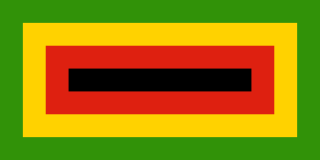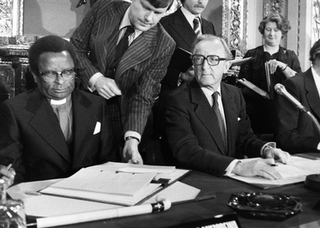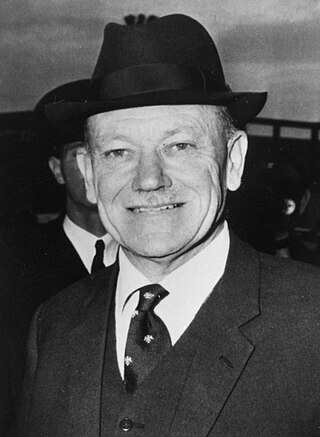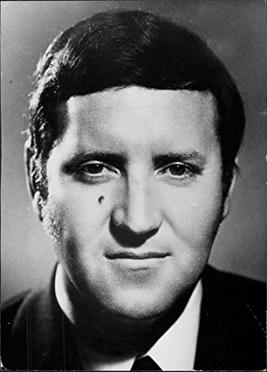
Rhodesia, officially from 1970 the Republic of Rhodesia, was an unrecognised state in Southern Africa from 1965 to 1979. During this fourteen-year period, Rhodesia served as the de facto successor state to the British colony of Southern Rhodesia, and in 1980 it became modern day Zimbabwe.

The politics of Zimbabwe occurs in a society deeply divided along lines of race, ethnicity, gender and geography. The ZANU–PF party has historically been dominant in Zimbabwe politics. The party, which was led by Robert Mugabe from 1980 to 2017, has used the powers of the state to intimidate, imprison and otherwise hobble political opposition in Zimbabwe, as well as use state funds and state media to advance the interests of the party.

Zimbabwe Rhodesia, alternatively known as Zimbabwe-Rhodesia, also informally known as Zimbabwe or Rhodesia, was a short-lived sovereign state that existed from 1 June 1979 to 18 April 1980, though it lacked international recognition. Zimbabwe Rhodesia was preceded by another state named the Republic of Rhodesia and was briefly under a British-supervised transitional government sometimes referred to as a reestablished Southern Rhodesia, which according to British constitutional theory had remained the lawful government in the area after Unilateral Declaration of Independence (UDI) in 1965. About three months later, the re-established colony of Southern Rhodesia was granted internationally-recognized independence within the Commonwealth as the Republic of Zimbabwe.

The Zimbabwe African National Union – Patriotic Front (ZANU–PF) is a political organisation which has been the ruling party of Zimbabwe since independence in 1980. The party was led for many years by Robert Mugabe, first as prime minister with the Zimbabwe African National Union (ZANU) and then as president from 1987 after the merger with the Zimbabwe African People's Union (ZAPU) and retaining the name ZANU–PF, until 2017, when he was removed as leader.

The Lancaster House Agreement refers to an agreement signed on 21 December 1979 in Lancaster House, following the conclusion of a constitutional conference where different parties discussed the future of Zimbabwe Rhodesia, formerly known as Rhodesia. The agreement effectively concluded the Rhodesian Bush War. It also marked the nullification of Rhodesia's Unilateral Declaration of Independence, as British colonial authority was to be restored for a transition period, during which free elections under supervision by the British government would take place. Crucially, ZANU and ZAPU, the political wings of ZANLA and ZIPRA, would be permitted to stand candidates in the forthcoming elections. This was however conditional to compliance with the ceasefire and the verified absence of voter intimidation.

John James Wrathall, was a British-born Rhodesian politician. He was the last white President of Rhodesia. He formerly worked as a chartered accountant.

The prime minister of Zimbabwe was a political office in the government of Zimbabwe that existed on two occasions. The first person to hold the position was Robert Mugabe from 1980 to 1987 following independence from the United Kingdom. He took office when Southern Rhodesia became the Republic of Zimbabwe on 18 April 1980. This position was abolished when the constitution was amended in 1987 and Mugabe became president of Zimbabwe, replacing Canaan Banana as the head of state while also remaining the head of government. The office of prime minister was restored in 2009 and held by Morgan Tsvangirai until the position was again abolished by the 2013 Constitution of Zimbabwe.
Byron Reuben Mtonhodzi Hove (1940-1999) was a Zimbabwean politician who served as justice minister in Zimbabwe Rhodesia with Hilary Squires as co-minister, and subsequently in the post-independence Parliament of Zimbabwe. He supported and participated in Prime Minister Ian Smith's Internal Settlement. He later served as ZANU-PF MP for Gokwe until April 1986 when he lost his position for misdemeanors.
Godfrey Guwa Chidyausiku was a Zimbabwean judge and politician. He was involved in politics during Rhodesia's unilaterally declared independence, being a member of the Rhodesian House of Assembly.

The Ministry of Internal Affairs, commonly referred to as INTAF, was a cabinet ministry of the Rhodesian government. One of Rhodesia's most important governmental departments, it was responsible for the welfare and development of the black African rural population. It played a significant role maintaining control of rural African villages during the Rhodesian Bush War.
Abortion in Zimbabwe is available under limited circumstances. Zimbabwe's current abortion law, the Termination of Pregnancy Act, was enacted by Rhodesia's white minority government in 1977. The law permits abortion if the pregnancy endangers the life of the woman or threatens to permanently impair her physical health, if the child may be born with serious physical or mental defects, or if the fetus was conceived as a result of rape or incest. Nevertheless, an estimated 70,000+ illegal abortions are performed in Zimbabwe each year.

The modern political history of Zimbabwe starts with the arrival of white people to what was dubbed Southern Rhodesia in the 1890s. The country was initially run by an administrator appointed by the British South Africa Company. The prime ministerial role was first created in October 1923, when the country achieved responsible government, with Sir Charles Coghlan as its first Premier. The third premier, George Mitchell, renamed the post prime minister in 1933.

Sir Thomas Hugh William Beadle, was a Rhodesian lawyer, politician and judge who served as Chief Justice of Southern Rhodesia from March 1961 to November 1965, and as Chief Justice of Rhodesia from November 1965 until April 1977. He came to international prominence against the backdrop of Rhodesia's Unilateral Declaration of Independence (UDI) from Britain in November 1965, upon which he initially stood by the British Governor Sir Humphrey Gibbs as an adviser; he then provoked acrimony in British government circles by declaring Ian Smith's post-UDI administration legal in 1968.

India–Zimbabwe relations are bilateral relations between India and Zimbabwe.

Rowan Cronjé was a Rhodesian politician who served in the cabinet under prime ministers Ian Smith and Abel Muzorewa, and was later a Zimbabwean MP. He emigrated to South Africa in 1985 and served in the government of Bophuthatswana.

The Ministry of Education was a government ministry of Rhodesia from the country's independence in 1965 to 1979, when the country transitioned from white minority rule to the multiracial democracy of Zimbabwe.

The Minister of Internal Affairs was the head of the Ministry of Internal Affairs, or INTAF, a department of the Rhodesian government concerned with the welfare and development of Rhodesia's rural black population. During the Rhodesian Bush War, the ministry also played a significant military role. The Minister of Internal Affairs was appointed by the Prime Minister of Rhodesia.

The Ministry of Agriculture was a cabinet ministry of the government of Rhodesia. It was responsible for overseeing the nation's agricultural development.

David Colville Smith was a farmer and politician in Rhodesia and its successor states, Zimbabwe Rhodesia and Zimbabwe. He served in the cabinet of Rhodesia as Minister of Agriculture from 1968 to 1976, Minister of Finance from 1976 to 1979, and Minister of Commerce and Industry from 1978 to 1979. From 1976 to 1979, he also served Deputy Prime Minister of Rhodesia. He continued to serve as Minister of Finance in the government of Zimbabwe Rhodesia in 1979. In 1980, he was appointed Minister of Trade and Commerce of the newly independent Zimbabwe, one of two whites included in the cabinet of Prime Minister Robert Mugabe.

The Deputy Prime Minister of Rhodesia was the deputy head of government of Rhodesia, serving under the Prime Minister of Rhodesia. Rhodesia, which became a self-governing colony of the United Kingdom in 1923, unilaterally declared independence on 11 November 1965, and was thereafter an unrecognized state until 1979. In December 1979, the country came under temporary British control, and in April 1980 the country gained recognized independence as Zimbabwe.










